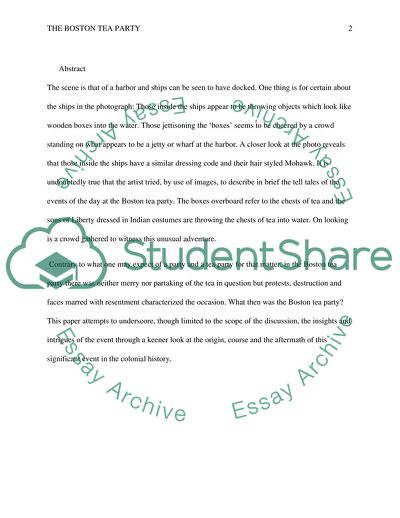Cite this document
(Boston Tea Party: Its Origin and Consequences Literature review Example | Topics and Well Written Essays - 1750 words, n.d.)
Boston Tea Party: Its Origin and Consequences Literature review Example | Topics and Well Written Essays - 1750 words. https://studentshare.org/history/1822942-american-history
Boston Tea Party: Its Origin and Consequences Literature review Example | Topics and Well Written Essays - 1750 words. https://studentshare.org/history/1822942-american-history
(Boston Tea Party: Its Origin and Consequences Literature Review Example | Topics and Well Written Essays - 1750 Words)
Boston Tea Party: Its Origin and Consequences Literature Review Example | Topics and Well Written Essays - 1750 Words. https://studentshare.org/history/1822942-american-history.
Boston Tea Party: Its Origin and Consequences Literature Review Example | Topics and Well Written Essays - 1750 Words. https://studentshare.org/history/1822942-american-history.
“Boston Tea Party: Its Origin and Consequences Literature Review Example | Topics and Well Written Essays - 1750 Words”. https://studentshare.org/history/1822942-american-history.


